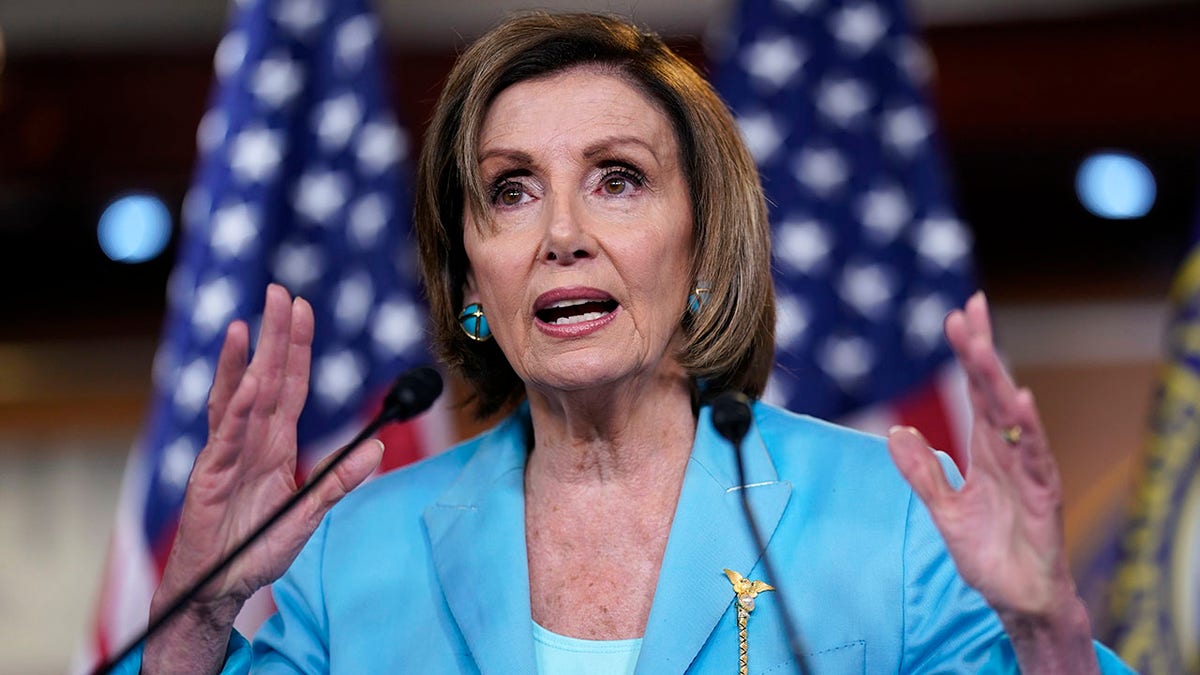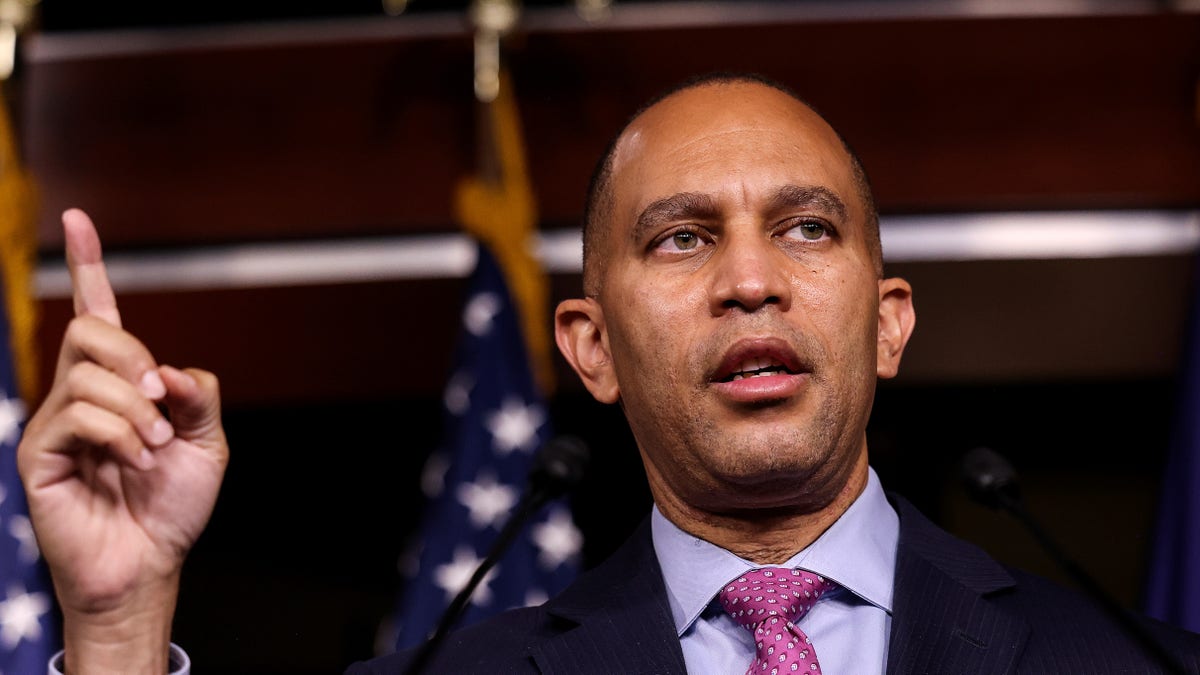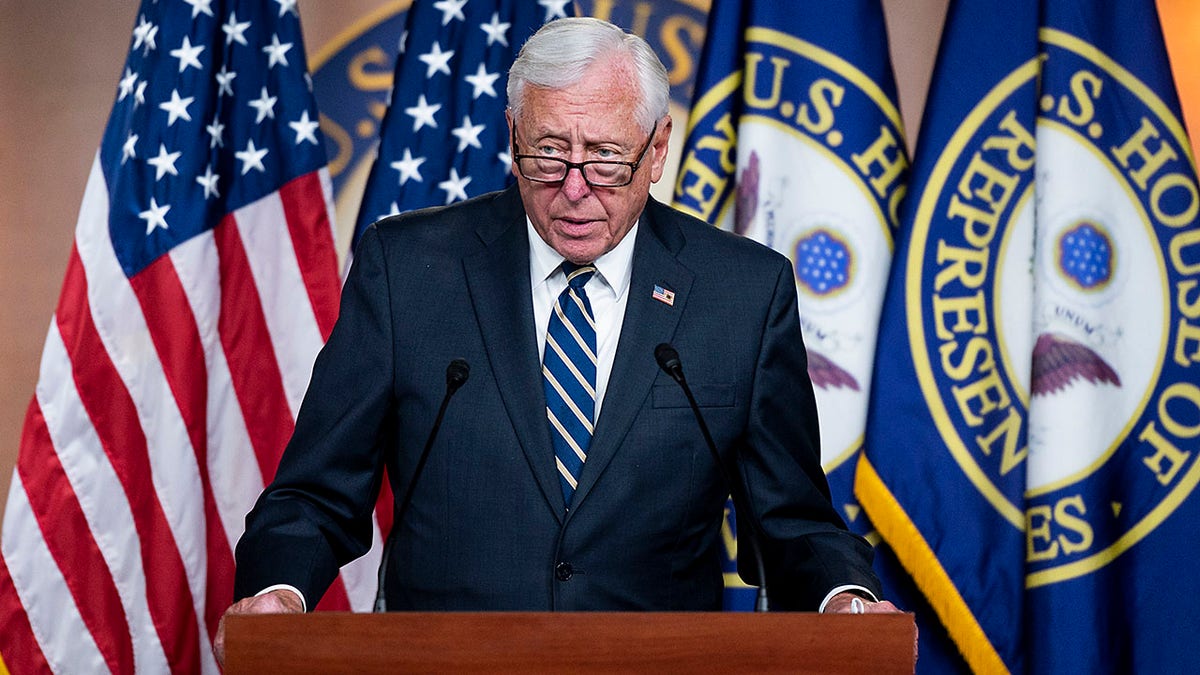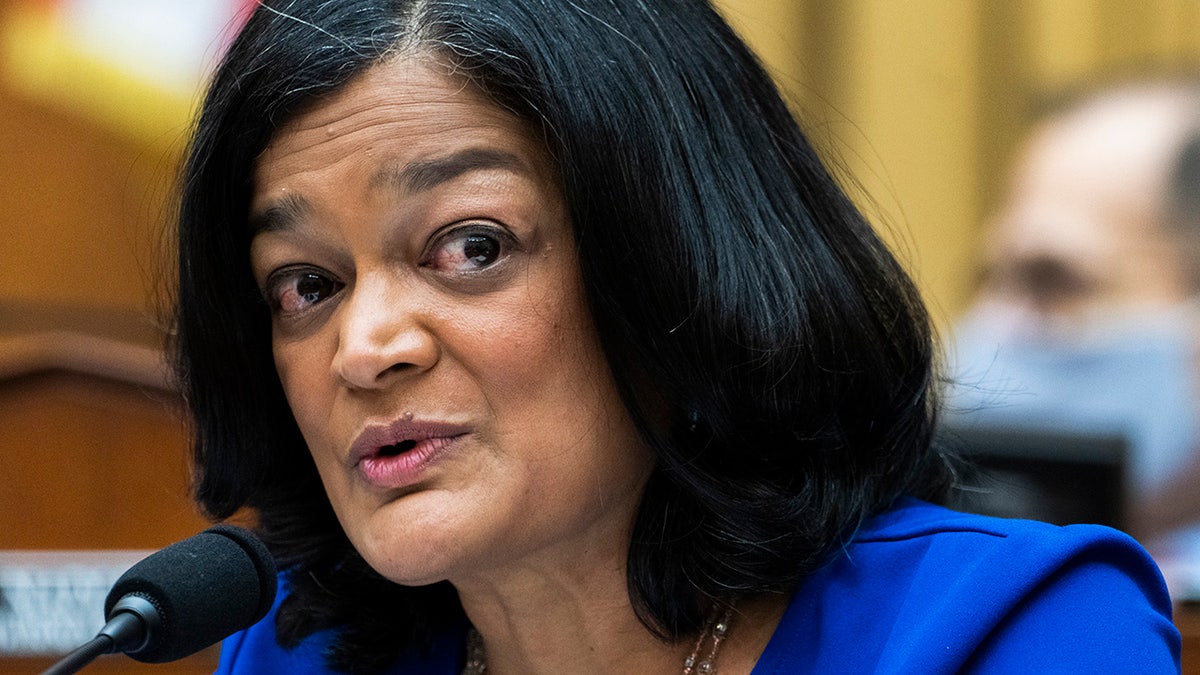Fox News Flash top headlines for December 28
Fox News Flash top headlines are here. Check out what's clicking on Foxnews.com.
Despite recent chatter that House Speaker Nancy Pelosi is considering a run for reelection, she's still widely expected to cede the top spot among House Democrats to another member of her party in the next Congress, especially if Republicans take back the chamber as many expect.
If she does step aside, Pelosi would cap a remarkable 20-year run as the top Democrat in the House of Representatives – and leave a major power vacuum for her party to fill.

Speaker of the House Nancy Pelosi, D-Calif., is widely expected to cede her role as the top Democrat in the House after the 2022 elections. (AP Photo/J. Scott Applewhite)
Here are some of the top options Democrats have if Pelosi's time in Congress is indeed coming to a close.
Hakeem Jeffries
Jeffries, D-N.Y., the House Democratic Caucus chairman, represents a major Democratic power center in New York City – just as Pelosi represents a similar stronghold in San Francisco.
CONGRESSIONAL DEMS ROILED BY DIVISION ON ISSUES FROM MASSIVE SPENDING BILLS TO VACCINE MANDATES
At 51, Jeffries would inject a relative element of youth into a Democratic leadership that includes three octogenarians at the top. He also brings to the table experience in a leadership position that some others don't have, strong support from many in the party establishment, and respect from even some Republicans. Jeffries was also an impeachment manager for former President Donald Trump's first impeachment trial.
But in a House Democratic caucus that's become increasingly progressive in recent years, Jeffries could very well face a challenge from his left flank.

House Democratic Caucus Chair Hakeem Jeffries, D-N.Y., speaks to reporters following a House Democratic Caucus meeting at the U.S. Capitol in Washington, Nov. 2, 2021. (REUTERS/Evelyn Hockstein)
The math could become extraordinarily complicated for him, especially if Democrats maintain a majority in the House. The House speaker is elected by a majority of the chamber, rather than a majority of the leading party, meaning that if Jeffries wants to be the House speaker he would need to line up nearly every member, including progressives, behind him.
The math is much simpler if Democrats end up in the minority. Jeffries would just need a simple majority of Democrats.
Hoyer or Clyburn
By the current leadership chart, House Majority Leader Steny Hoyer, D-Md., is technically the first in line to replace Pelosi, and House Majority Whip James Clyburn, D-S.C., is second.
Both command immense respect in Democratic circles. Clyburn is widely credited with helping President Biden pull off a massive comeback in the 2020 Democratic primary after dismal performances in Iowa, New Hampshire and Nevada. And Hoyer has been in House Democratic leadership since the Reagan administration.
"Leader Hoyer is proud to continue serving his constituents and the American people and to be a proven and effective leader in getting things done, particularly during times of crisis, including throughout the COVID-19 pandemic," Hoyer spokesperson Margaret Mulkerrin told Fox News.

House Majority Leader Steny Hoyer, D-Md., speaks during the House Democrats press conference on Wednesday, July 22, 2020. (Bill Clark/CQ-Roll Call, Inc via Getty Images)
HOW THE ‘SQUAD’ MADE ITS MARK ON DEMOCRATS IN 2021
"His leadership experience has ensured that the House is responding to the needs of Americans, including by enacting the American Rescue Plan and the bipartisan infrastructure law," Mulkerrin continued. "He is proud to have the support of his colleagues, and remains focused on getting work done for the American people, including enacting the Build Back Better Act and advancing priorities important to working families across the country."
Both Hoyer and Clyburn indicated this year they plan to run for reelection, and Hoyer just filed to run in December.
But both are over 80 year old. And especially if Democrats lose in 2022, it's possible the pair will be out of Democratic leadership entirely – whether by their own choice or because the caucus is looking for a change.
Pramila Jayapal
Jayapal, D-Wash., is the chair of the Congressional Progressive Caucus and one of the House members whose power and notoriety exploded in 2021. She and her progressive members blocked the passage of the bipartisan infrastructure bill for months as they tried to extract assurances that Democrats' massive reconciliation spending bill would make it through the Senate.
The reconciliation bill is dead and the infrastructure bill is law, meaning the caucus failed to achieve its goals for the year. But it did show its leverage among House Democrats, and the dozens of Progressive Caucus members could be a natural constituency for Jayapal in a speakership run.
R Street Institute senior fellow for governance James Wallner, however, told Fox News that Jayapal might want to think twice before running for leadership. He said jobs like fundraising and traveling to represent the party nationally may detract from her progressive advocacy.

Rep. Pramila Jayapal, D-Wash., speaks during a House Judiciary Committee markup of the Ending Forced Arbitration of Sexual Assault and Sexual Harassment Act of 2021 and other legislation in Rayburn Building on Tuesday, Nov. 17, 2021. (Tom Williams/CQ-Roll Call, Inc via Getty Images)
PRESSLEY, ‘SQUAD’ DEMS PRESSURE PELOSI TO STRIP BOEBERT COMMITTEE ASSIGNMENTS OVER OMAR COMMENTS
"Once you're speaker, you have a different set of responsibilities," he said. "Having a progressive speaker would be, at the margins, better for progressives. But the question that progressives… need to ask themselves is can they be more effective, more aggressive… not in leadership but in pressuring leadership to do things."
He added: "If you want to be really effective, you can be effective from all kinds of different places…. You could be less effective in the speakership role than you would be as the leader of a very muscular and aggressive and creative, outside-the-box- thinking progressive faction in the House."
The field
Assistant House Speaker Katherine Clark, D-Mass., is a big-state Democrat with establishment credibility. She's also in her 50s, like Jeffries, giving her more youth than Clyburn or Hoyer. But she may not seek the speaker spot if Jeffries is the front-runner, as The Atlantic reported earlier this year the pair aim to advance their careers as allies.
Rep. Katie Porter, D-Calif., is considered a rising star in the Progressive Caucus. She could be a dark horse candidate for progressives if Jayapal decides that she can be most effective where she is. Porter is also one of the most prolific fundraisers in the Democratic Caucus, according to the LA Times – something that is a key part of the party leader job. But Porter only entered Congress in 2018, which may handicap her chances at the top job.
CLICK HERE TO GET THE FOX NEWS APP
House Intelligence Committee Chairman Adam Schiff, D-Calif., has also been thrown around in recent years as a successor to Pelosi, especially after his aggressive attacks on Trump on the Russia issue. But amid a trickle of more and more information undermining the narrative that Trump colluded with Russia during the 2016 election, Schiff has been playing more defense than offense recently.
House Democratic Caucus Vice Chair Rep. Pete Aguilar, D-Calif., brings experience in a leadership position to the table for Democrats. But with multiple members of leadership ahead of him in line, and other outsiders that have more name recognition and larger natural constituencies, it's difficult to see Aguilar's path to party leader.













































